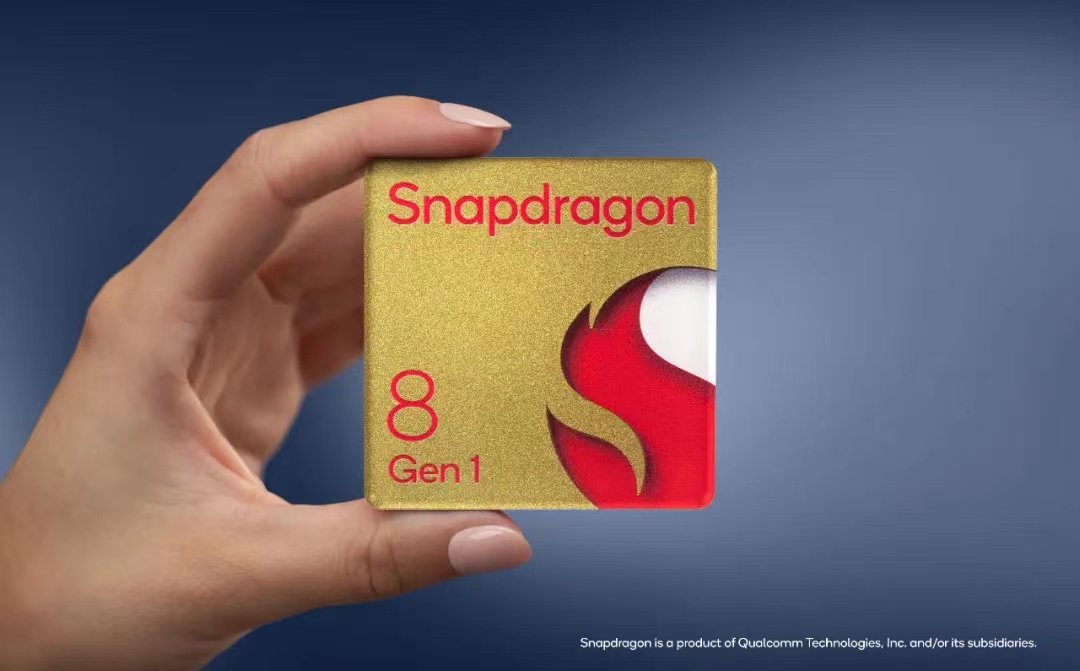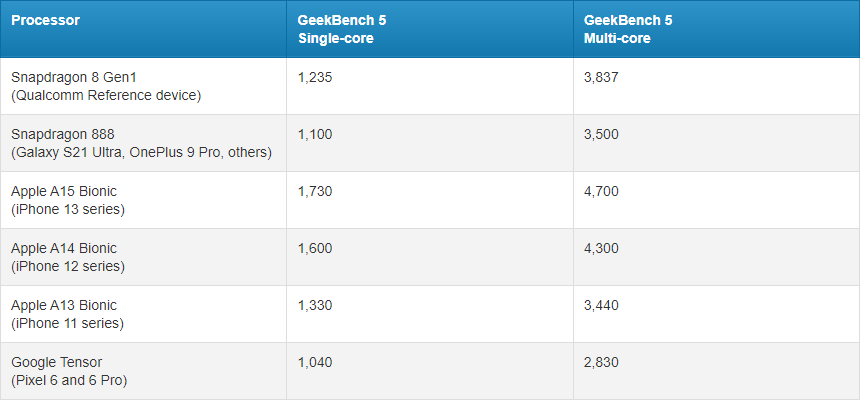Chipmaker Qualcomm revamped the naming scheme of its chips with the Snapdragon 8 Gen 1 primed to be a very popular choice for 2022 flagship devices from several phone brands. It was officially unveiled by Qualcomm days back and new performance details about the chipset have now appeared. The new benchmarks reflect how the Snapdragon 8 Gen 1 compares with its predecessor, the Snapdragon 888, and Apple’s A15 Bionic.

During the Qualcomm event where the Snapdragon 8 Gen 1 was unveiled, it was showcased inside a reference platform device. The Geekbench 5 scores shared by PC Mag indicate the performance of the chip across several important metrics. Geekbench provides a cross-platform CPU performance benchmark with three results. There are slight variations between runs of each of the tests but these variations are not significant to affect the reliability of the results.
The Qualcomm Snapdragon 8 Gen 1 scored 1,234 and 3,837, respectively for the Geekbench single-core and multi-core tests. Both Geekbench 5 scores for the Snapdragon 8 Gen1 were higher than those obtained for the Snapdragon 888 but still fall short of those of Apple’s A15 Bionic which powers the iPhone 13 series. From the scores, the Snapdragon 8 Gen 1 chipset is still lower, performance-wise than Apple’s A14 Bionic, while it is almost at par with the Apple A13 Bionic which powers the iPhone 11 series.
Qualcomm had predicted a 20% performance improvement of the Snapdragon 8 Gen 1 over the Snapdragon 888, but this is not reflected in the new Geekbench 5 scores. Qualcomm will have to up its game to catch up with Apple whose chips are at least two generations ahead of the latest Qualcomm SoC. The scores are not fully definitive yet, since the device tested is not a commercial smartphone but a reference device. There could be some improvements in the current Geekbench 5 scores when an actual product powered by the chip is put through the Geekbench tests.
There are however improvements in GPU performance which is a great boon for gamers, as shown in the GFXBench 5 Aztec Ruins offscreen test, where the device outperformed the Apple iPhone 13 Pro Max.
RELATED:
- Samsung 3nm GAA process may have AMD & Qualcomm as its first customers
- Qualcomm Snapdragon 7c+ Gen 3 unveiled for entry-level Windows PCs and Chromebooks
- Qualcomm Snapdragon 8cx Gen 3 announced for next-gen Windows on ARM devices
- Qualcomm Snapdragon G3x Gen 1 announced for Android-based handheld gaming devices
- Qualcomm launches Snapdragon 8 Gen 1 chip; will power next-gen Android flagship smartphones
(via)







